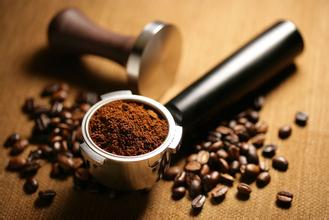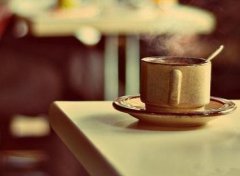Coffee preservation method the storage of coffee beans directly affects the quality of coffee beans.

The storage of coffee beans has a direct impact on the quality of coffee beans, especially for coffee beginners, how to preserve your beloved beans? here are some ways to preserve coffee beans.
◎ makes good use of the proportion of carbon dioxide
As far as gas is concerned, the specific gravity of carbon dioxide is higher than that of gas. Therefore, in the same sealed space, carbon dioxide precipitates at the bottom and air floats at the top. After understanding this truth, its applicability can be judged when choosing containers or bags.
◎ uses vertical sealed cans
In turn, the carbon dioxide released by fresh coffee beans will be left at the bottom of the container to form a carbon dioxide layer to protect the coffee beans, and the container is best placed upright to prevent the loss of carbon dioxide in the bottle or bag. Thus it can be seen that upright, tall and open containers are more suitable for preserving coffee beans.
◎ uses a long spoon to fish for coffee beans
The specific gravity of carbon dioxide is higher than that of air, so it is deposited at the bottom of the container. When taking coffee beans, do not use the method of pouring, otherwise the carbon dioxide in the container will be poured out and regeneration will become more and more difficult. It is recommended that you use a long spoon to reach the bottom of the container for coffee beans so as not to lead to rapid loss of carbon dioxide.
◎ uses opaque jars
Light is a catalyst for carbon dioxide, and opaque jars can slow down the speed of oxygen.
Keep ◎ in a cool, dry place.
High temperature is easy to volatilize the aroma of coffee and the excellent substances inside coffee beans, so coffee cans should be avoided in high temperature environment as far as possible, preferably in a cool and dry place.
Important Notice :
前街咖啡 FrontStreet Coffee has moved to new addredd:
FrontStreet Coffee Address: 315,Donghua East Road,GuangZhou
Tel:020 38364473
- Prev

Common sense of average Chemical composition of Coffee beans
The average chemical composition of raw coffee beans is as follows: water 12%, nitrogen 12%, fat 12%, sugar and dextrin (dextrine) 10%, other non-nitrogen substances 18%, dust 4%, tannin 6.7%, caffeine 1.2%, coffee essential oil 0.1%. Of course, these data are not fixed, and the quantity of some of these ingredients varies greatly, which is why each kind of coffee is so different.
- Next

The roasting method of professional coffee the eight stages of coffee baking
The eight stages of roasting: the roasting method of professional coffee is usually divided into the following eight stages. 1. Very shallow baking (LIGHT Roast): the degree of baking; very shallow baking, also known as shallow baking. The lightest roasting degree of all roasting stages, the surface of the coffee beans is a light cinnamon color, its taste and aroma are insufficient, this state is almost undrinkable. It is generally used in testing, but rarely used.
Related
- Beginners will see the "Coffee pull flower" guide!
- What is the difference between ice blog purified milk and ordinary milk coffee?
- Why is the Philippines the largest producer of crops in Liberia?
- For coffee extraction, should the fine powder be retained?
- How does extracted espresso fill pressed powder? How much strength does it take to press the powder?
- How to make jasmine cold extract coffee? Is the jasmine + latte good?
- Will this little toy really make the coffee taste better? How does Lily Drip affect coffee extraction?
- Will the action of slapping the filter cup also affect coffee extraction?
- What's the difference between powder-to-water ratio and powder-to-liquid ratio?
- What is the Ethiopian local species? What does it have to do with Heirloom native species?

